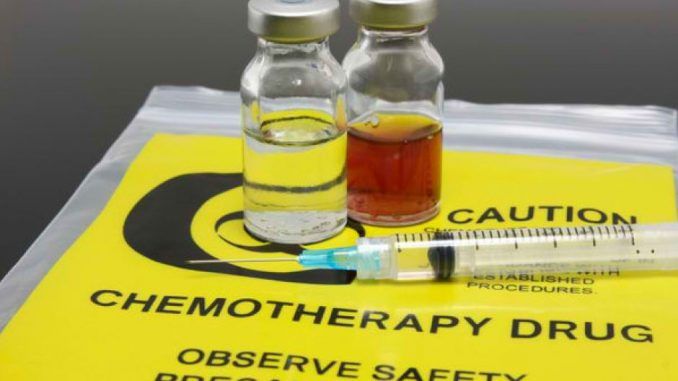
New research has shown that chemotherapy drugs are killing up to 50 per cent of patients in some hospitals.
Based on the numbers of cancer patients who died within 30 days of starting chemotherapy researchers found indications that the medication was the cause of death, rather than the cancer.
The research was published in the Lancet Oncology

BYPASS THE CENSORS
Sign up to get unfiltered news delivered straight to your inbox.
You can unsubscribe any time. By subscribing you agree to our Terms of Use
The Telegraph reports:
The study by Public Health England and Cancer Research UK found that across England around 8.4 per cent of patients with lung cancer, and 2.4 per cent of breast cancer patients died within a month.
But in some hospitals the figure was far higher. In Milton Keynes the death rate for lung cancer treatment was 50.9 per cent, although it was based on a very small number of patients.
At Lancashire Teaching Hospitals the 30 day mortality rate was 28 per cent for palliative chemotherapy for lung cancer, which is given when a cure is not expected and treatment given to alleviate symptoms.
Deaths of lung cancer patients from chemotherapy were also far higher than the national average in Blackpool, Coventry, Derby, South Tyneside and Surrey and Sussex, according to the research.
Similarly, around one in five people who underwent palliative care for breast cancer at Cambridge University Hospitals died from their treatment.
Public Health England (PHE), said it had contacted the hospitals concerned to ask them to review practices.
Dr Jem Rashbass, Cancer Lead for PHE, said: “Chemotherapy is a vital part of cancer treatment and is a large reason behind the improved survival rates over last four decades.
“However, it is powerful medication with significant side effects and often getting the balance right on which patients to treat aggressively can be hard.
“Those hospitals whose death rates are outside the expected range have had the findings shared with them and we have asked them to review their practice and data.”
The study looked at more than 23,000 women with breast cancer and nearly 10,000 men with 9634 non-small cell lung cancer who underwent chemotherapy in 2014. Of those treated 1,383 died within 30 days.
Chemotherapy is toxic for the body because it does not discriminate between healthy and cancerous cells.
The researchers also found that there were significant differences in survival for older people and those in poorer health. They advised doctors to be more careful in selecting patients for treatment where it could do more harm than good.
“The statistics don’t suggest bad practice overall but there are some outliers,” said Professor David Dodwell, Institute of Oncology, St James Hospital, Leeds, UK.
“It could be data problems, and figures skewed because of just a few deaths, but nevertheless it could also be down to problems with clinical practice.
“I think it’s important to make patients aware that there are potentially life threatening downsides to chemotherapy. And doctors should be more careful about who they treat with chemotherapy.”


